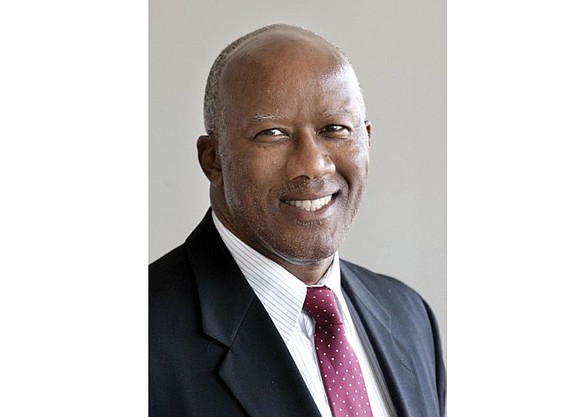Divergent political lives
12/30/2016, 12:54 p.m.
Wayne Dawkins
In August 2000, Jesse Jackson Jr. was a man with a bright future. He was the son of Jesse L. Jackson Sr., the civil rights firebrand who twice ran for president and audaciously planted the seed that, someday, an African-American could be elected the nation’s commander in chief.
Unlike his tree-shaker dad, Jesse Jr. was a jelly maker. He was a three-term U.S. representative from Illinois, experienced in the legislative process.
On Aug. 19, 2000, Jesse Jr. was at the National Association of Black Journalists convention in Phoenix, where he debated another political bright light, Lt. Gov. Joe Rogers of Colorado, who, at the time, was the highest-ranking black elected official in the nation. Like Mr. Jackson, Mr. Rogers was relatively young, in his 30s.
Both men used their intellects to duel at the NABJ’s W.E.B. DuBois symposium, promoted as a debate that channeled the renowned DuBois-Booker T. Washington debates nearly a century ago.
I witnessed the Jackson-Rogers debate. It was pointed, yet civil and substantive. Both men would be going places, especially Mr. Jackson, who was Chicago-style political royalty, like the Kennedy clan of Boston.
At that time in Chicago, Barack Hussein Obama, a rookie state senator and former community organizer, chose to challenge Congressman Bobby Rush, a former Black Panther with deep roots in the community, unlike the Hawaiian-born, biracial newcomer. Rep. Rush crushed Mr. Obama in the Democratic primary, yet as Ta-Nehisi Coates wrote in The Atlantic’s latest edition, the political defeat did not crush Mr. Obama’s spirit. Elderly black ladies who adored Mr. Obama’s character and commitment counseled him privately — be patient, it was not your time.
Mr. Obama heeded their advice. Next time, he aimed higher. In 2004, he ran and won a rare U.S. Senate seat. And readers, you know what’s next. Washington political pros privately encouraged the freshman senator to run for president, and Mr. Obama improbably challenged and beat another political royal family, the Clintons of Arkansas, and was elected the nation’s 44th president in 2008.
As Mr. Coates chronicled in “My President was Black,” President Obama accomplished much — pulling the nation back from a depression, securing health care for millions of formerly uninsured and bringing terrorist Osama bin Laden to justice — despite intransigence and moments of unmasked racism by Republican opposition.
In 2008, 43 percent of white voters supported President Obama. By the 2012 presidential election, a battered U.S. economy was healing slowly. President Obama had lost some white support, and black and brown voters who complained that the president did not press their issues aggressively enough understood that the political alternative was hostile and destructive. President Obama, then 51, was rehired for a second term.
Now with about three weeks left in his eight-year presidency, scholars and pundits marvel at the scandal-free, wholesome and inspiring Obama years — and wait with trepidation for the reign of President-elect Donald Trump.
So what became of Jesse Jackson Jr.?
He was mentioned as a possibility to fill President Obama’s vacated U.S. Senate seat for Illinois in 2008. But Mr. Jackson, 51, slipped and fell into a spiraling scandal. He was convicted of spending $750,000 from his congressional campaign on personal items, reported the New York Times in 2013. His wife, Sandi, a Chicago alderman, also was convicted of omitting $580,000 in income from their tax returns, according to published reports. Jesse and Sandi Jackson were sentenced to prison for 2½ years and 12 months, respectively.
The Jacksons have since been released and are in the process of filing for divorce. They are negotiating custody of their teenage children.
Meanwhile, Lt. Gov. Rogers, the promising black Republican from Colorado, died in 2013 at age 49.
Mr. Jackson had the hometown advantage, family pedigree and Washington legislative experience, yet flopped. President Obama, a wary outsider and “exotic,” as Mr. Coates characterized him in The Atlantic article, broke barriers, excelled and inspired others.
The fates of Mr. Jackson and Mr. Obama, two young, black politicians whose careers intersected then zoomed in opposite directions, serve as object lessons for aspiring professionals.
The writer is a professor of professional practice at Hampton University’s Scripps Howard School of Journalism and Communications.








